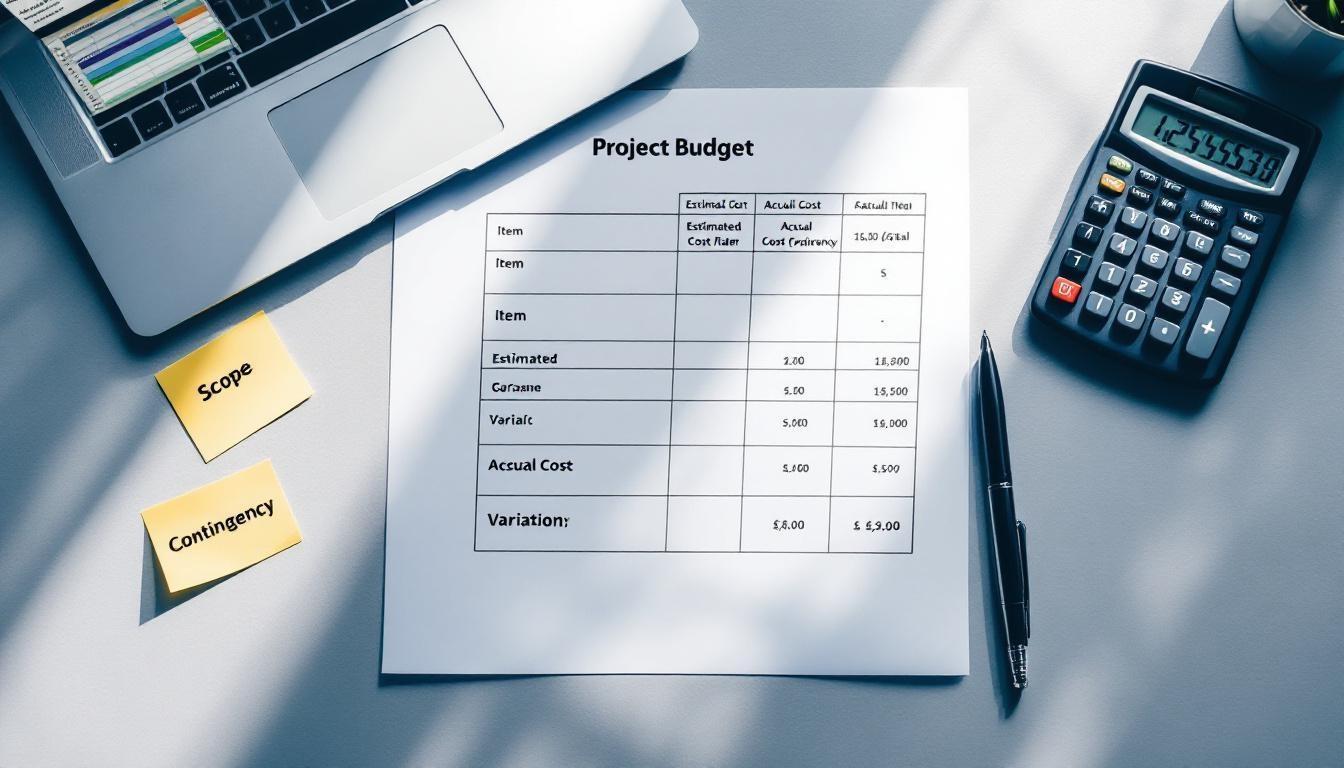
Construction cost accounting is a critical skill for any successful construction project. At adding technology, we’ve seen firsthand how mastering this discipline can significantly impact a company’s bottom line.
This blog post will guide you through the essentials of construction cost accounting, from understanding its key components to implementing best practices in your organization.
Construction cost accounting forms the cornerstone of financial management in the building industry. This specialized system tracks, analyzes, and reports costs associated with construction projects. Effective construction billing is a key component of construction accounting and is essential for ensuring that a construction project is financially viable.
Construction cost accounting centers on three main components:
A study by the Construction Financial Management Association (CFMA) found that improving labor cost estimation can increase bid accuracy. This statistic underscores the importance of detailed cost tracking in construction.
While financial accounting focuses on a company’s overall financial health, cost accounting examines the details of individual projects. It provides insights into where every dollar goes and how it contributes to job completion.
For instance, cost accounting helps identify the most profitable types of projects. A mid-sized contractor discovered through detailed cost analysis that their commercial projects yielded a 22% higher profit margin than their residential work. This insight allowed them to refocus their business strategy, resulting in an 18% increase in overall profitability within a year.
Modern construction cost accounting provides a dynamic tool for real-time decision making. With the right systems in place, project managers access up-to-the-minute cost data, enabling informed decisions that keep projects on budget.
A Sage survey found that 53% of construction companies still use manual methods for cost tracking, leading to reporting delays and potential errors.
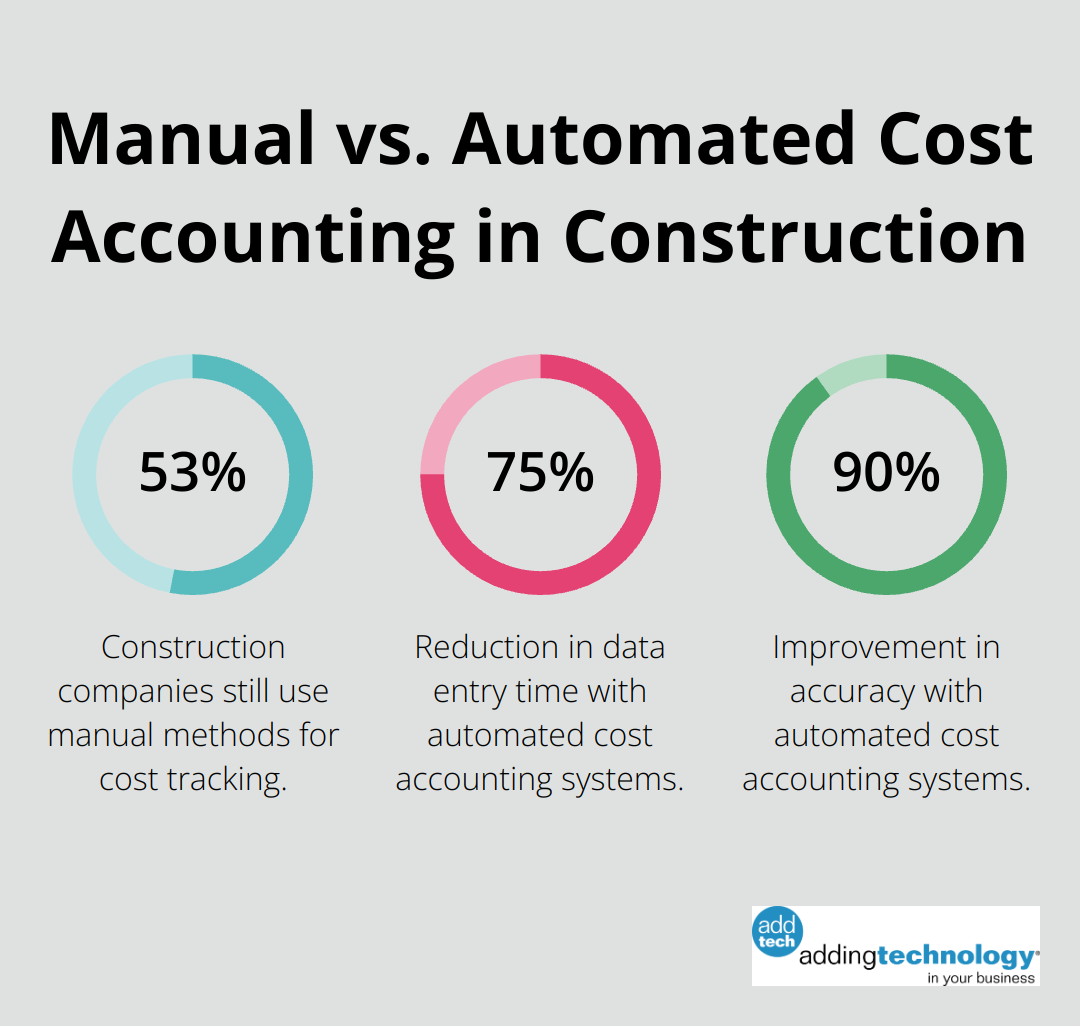
Companies can reduce data entry time by up to 75% and improve accuracy by 90% by implementing automated cost accounting systems.
The integration of advanced technology in cost accounting systems revolutionizes how construction companies manage their finances. Real-time cost tracking systems (like those offered by Adding Technology) provide instant visibility into project finances. This level of insight allows for proactive management rather than reactive damage control when budgets start to slip.
As we move forward, we’ll explore the essential methods that form the backbone of effective construction cost accounting. These techniques will help you transform raw financial data into actionable insights for your construction business.
Job costing stands as the most prevalent method in construction cost accounting. This approach enables you to track costs for each specific project, offering detailed insights into profitability. A study by the Construction Financial Management Association revealed that companies using detailed job costing were 35% more likely to complete projects on budget.
To implement job costing effectively:
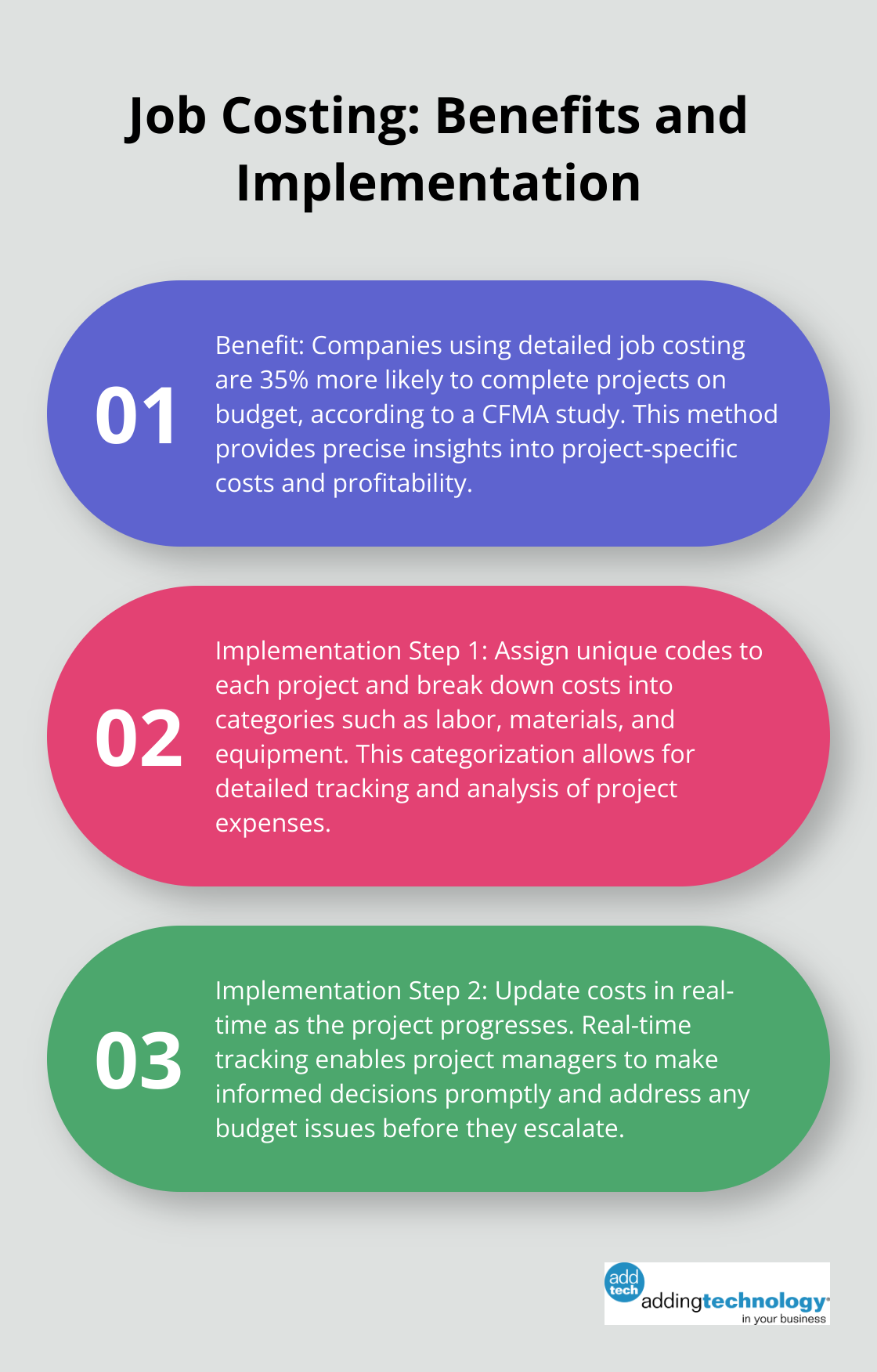
Activity-based costing (ABC) elevates job costing by assigning costs to specific activities within a project. This method provides a more accurate picture of resource utilization and can identify inefficiencies.
A commercial builder using ABC discovered that site preparation activities consumed 20% more resources than estimated. They reduced these costs by 15% on subsequent projects by adjusting their processes.
Unit costing proves particularly useful for projects with repetitive elements. Calculating costs per unit of measurement (e.g., per square foot or per linear foot) allows you to create more accurate estimates for future projects.
A residential developer improved their estimate accuracy by 28% over six months using unit costing, leading to more competitive bids and increased profit margins.
Implementing these methods requires a robust accounting system. While 53% of construction companies still rely on manual tracking, adopting specialized software can dramatically improve accuracy and efficiency. Solutions that integrate these methods seamlessly provide real-time insights and improve decision-making capabilities.
To maximize the benefits of these cost tracking methods:
The construction industry continues to evolve, and so should your cost tracking methods. The next section will explore advanced techniques to further refine your construction cost accounting practices.
A well-structured chart of accounts forms the foundation of effective cost accounting. It should mirror your company’s specific needs and project types. For example, a commercial builder might separate accounts for concrete work, electrical installations, and HVAC systems. This level of detail enables precise cost allocation and analysis.
The Construction Financial Management Association reports that companies with detailed charts of accounts complete projects within budget 40% more often. This statistic highlights the importance of a tailored accounting structure.
Generic accounting software often fails to meet the unique needs of construction firms. Industry-specific solutions offer features like job costing, change order management, and progress billing. These tools can significantly improve accuracy and efficiency.
Construction accounting software offers customizable, detailed reports, such as profit and loss statements and balance sheets. This improvement can save time and enhance client relationships by minimizing disputes.
Real-time cost tracking is essential in modern construction accounting. Current software solutions allow immediate data entry and analysis, providing up-to-the-minute insights into project finances.
Real-time reporting eliminates manual data entry by automating expense tracking and invoice generation processes. This rapid response capability can determine a project’s profitability.
Even the best systems require skilled users. Regular training ensures that your team understands cost accounting principles and can effectively use your chosen software.
One construction firm increased cost estimate accuracy by 25% after implementing a comprehensive training program for project managers and accounting staff. This improvement directly translated to more competitive bids and increased profitability.
The construction landscape changes constantly, with fluctuating material prices and evolving labor costs. Regular reviews of your cost estimates and actual project expenses maintain accuracy.
Try to conduct weekly cost reviews for ongoing projects and monthly reviews of overall financial performance. This frequency allows timely adjustments and prevents small issues from becoming major financial problems.
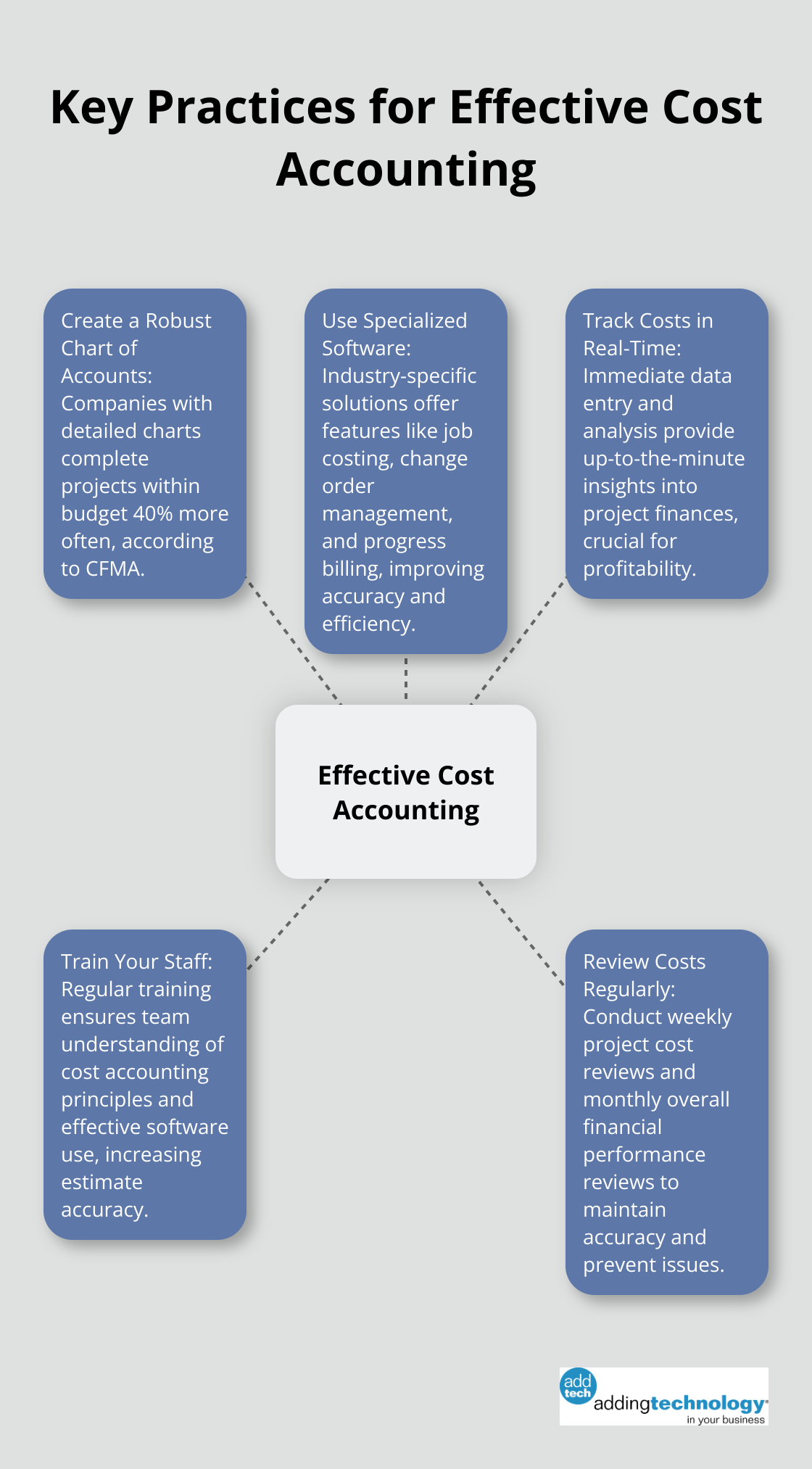
Construction cost accounting forms the cornerstone of financial success in the building industry. It provides powerful tools for tracking expenses, analyzing profitability, and making informed decisions. Effective implementation of cost accounting methods, such as job costing and activity-based costing, can significantly improve project outcomes and overall business performance.
Specialized software, real-time tracking, and regular cost reviews are essential components of a robust cost accounting system. These elements enable construction firms to respond quickly to changing conditions and maintain accurate financial records. Staff training ensures that teams can fully utilize these tools, maximizing their impact on project management and financial performance.
We at Adding Technology offer tailored solutions for construction accounting to help firms build a solid financial foundation. Our expertise can support your focus on delivering exceptional projects while we manage your financial processes. Mastering construction cost accounting is not just beneficial-it’s essential for long-term success in today’s competitive market.

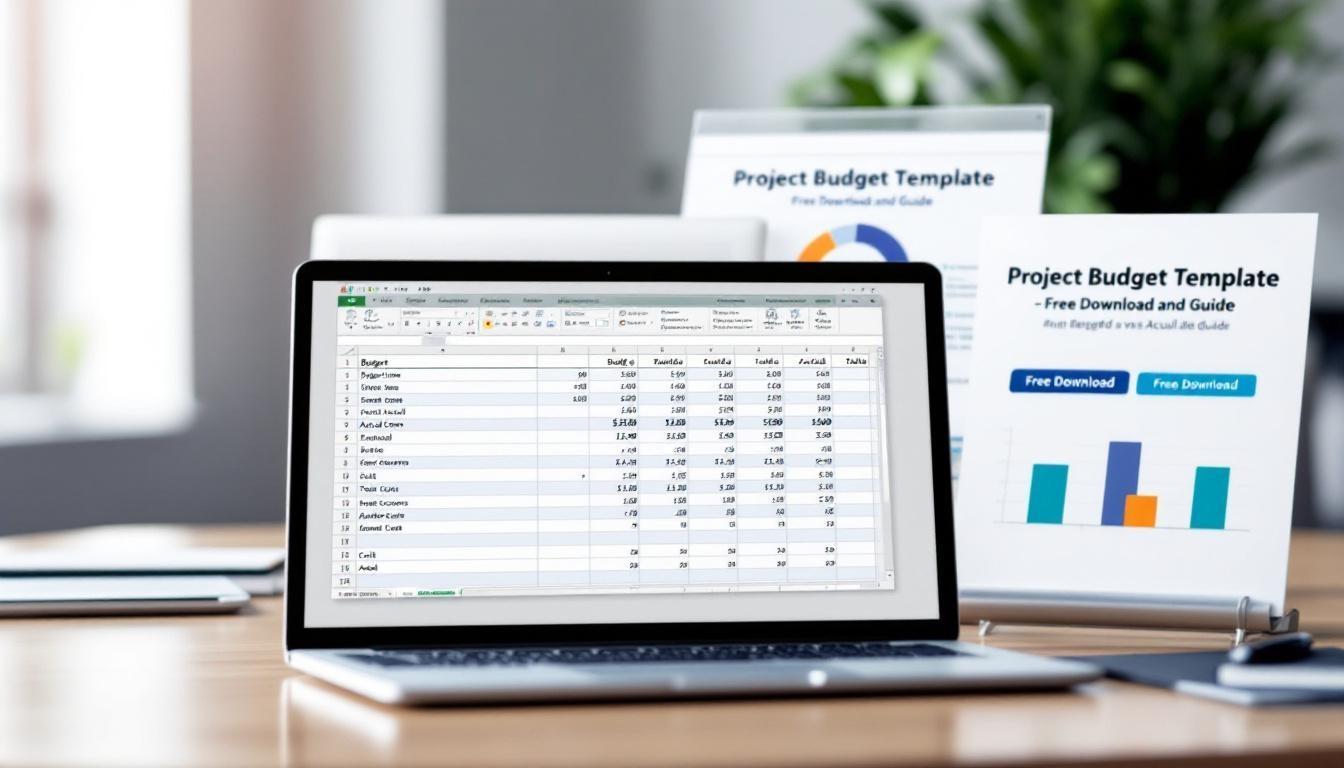






At adding technology, we know you want to focus on what you do best as a contractor. In order to do that, you need a proactive back office crew who has financial expertise in your industry.
The problem is that managing and understanding key financial compliance details for your business is a distraction when you want to spend your time focused on building your business (and our collective future).
We understand that there is an art to what contractors do, and financial worries can disrupt the creative process and quality of work. We know that many contractors struggle with messy books, lack of realtime financial visibility, and the stress of compliance issues. These challenges can lead to frustration, overwhelm, and fear that distracts from their core business.
That's where we come in. We're not just accountants; we're part of your crew. We renovate your books, implement cutting-edge technology, and provide you with the real-time job costing and financial insights you need to make informed decisions. Our services are designed to give you peace of mind, allowing you to focus on what you do best - creating and building.
Here’s how we do it:
Schedule a conversation today, and in the meantime, download the Contractor’s Blueprint for Financial Success: A Step by-Step Guide to Maximizing Profits in Construction.” So you can stop worrying about accounting, technology, and compliance details and be free to hammer out success in the field.